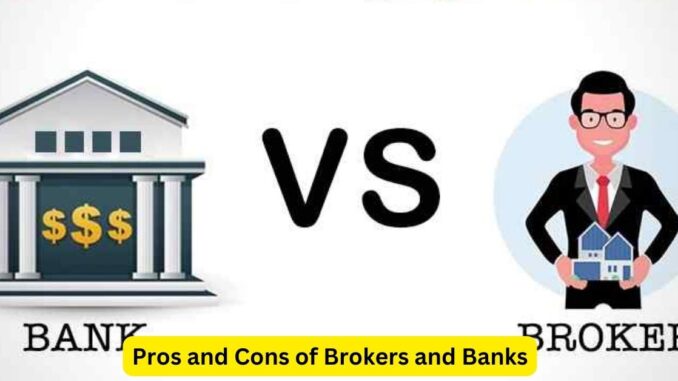
When seeking a mortgage, borrowers often face a choice between obtaining their loan through a bank or working with a mortgage broker. Each option comes with its own set of advantages and drawbacks, catering to different needs and preferences.
Mortgage Brokers:
Pros:
- Access to Multiple Lenders: Brokers work as intermediaries between borrowers and various lending institutions, providing access to a wide range of loan products and rates. This can increase the chances of finding a suitable mortgage tailored to individual needs.
- Negotiation and Customization: Brokers can negotiate terms on behalf of borrowers and often have the flexibility to tailor loans to specific financial situations. They can offer personalized guidance and find options that suit unique circumstances.
- Convenience and Time-Saving: Brokers handle much of the legwork, streamlining the application process. They gather necessary documentation, submit applications, and communicate with lenders, saving borrowers time and effort.
Cons:
- Possible Fees: While some brokers don’t charge fees directly to borrowers, they earn a commission from lenders. Borrowers should clarify any fees upfront to avoid surprises.
- Limited Direct Control: As intermediaries, brokers don’t control the lending decisions made by banks or other financial institutions. Delays or issues arising from the lender’s end might be beyond the broker’s control.
Banks:
Pros:
- Familiarity and Established Relationships: Borrowers who prefer a one-on-one relationship and have an existing banking history might find it more comfortable to secure a mortgage from their primary bank. Familiarity with the bank’s processes can streamline the application.
- In-House Deals and Incentives: Some banks offer incentives or discounts for clients who have multiple accounts or maintain certain balances, potentially leading to more favorable terms.
Cons:
- Limited Product Options: Banks offer their specific suite of mortgage products, limiting the range of options available to borrowers. This might not cater to diverse financial situations or unique needs.
- Potentially Rigorous Approval Criteria: Banks might have stricter approval standards compared to brokers, making it harder for some borrowers with less-than-ideal credit scores or financial situations to secure a loan.
Deciding between a mortgage broker and a bank involves weighing these factors against your specific requirements. Those seeking a wider array of options and personalized guidance might lean towards brokers, while individuals prioritizing convenience and existing relationships may opt for banks. Ultimately, thorough research and understanding of individual financial goals are essential in making an informed decision.
Leave a Reply